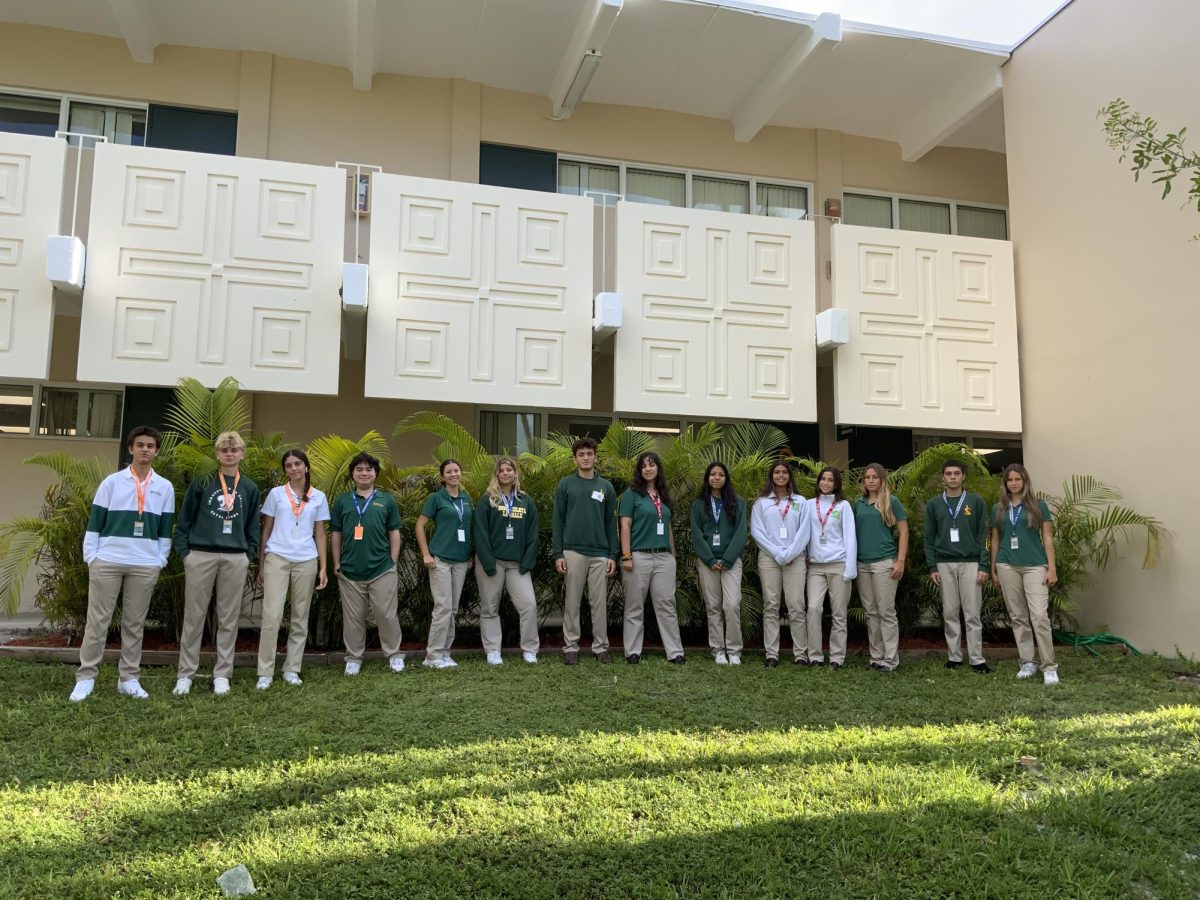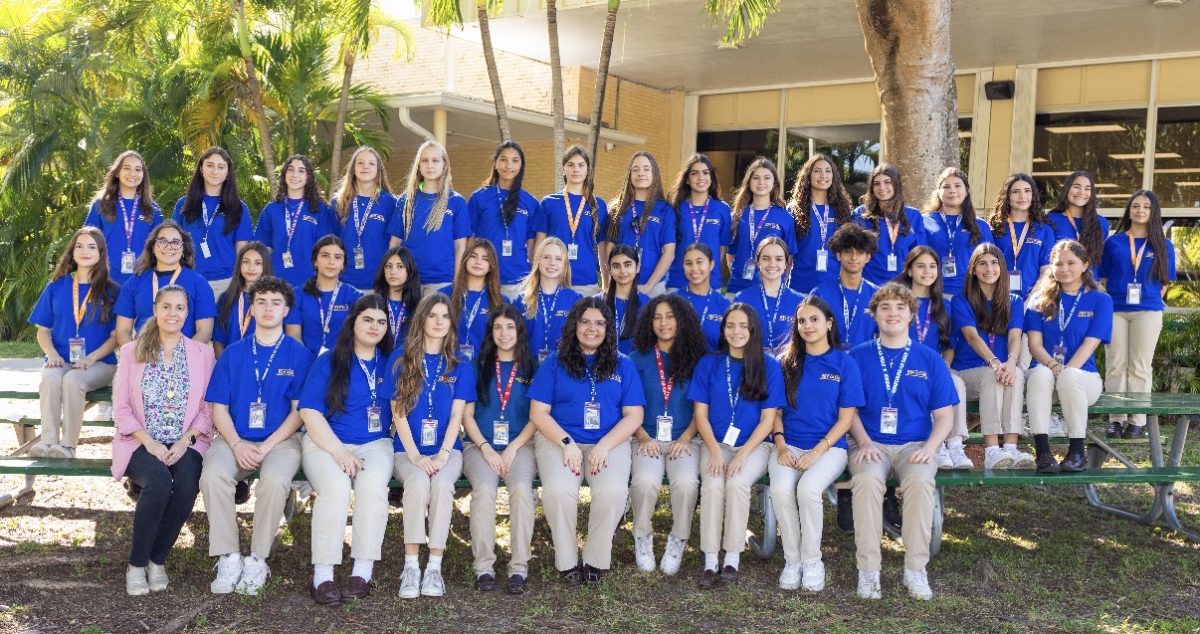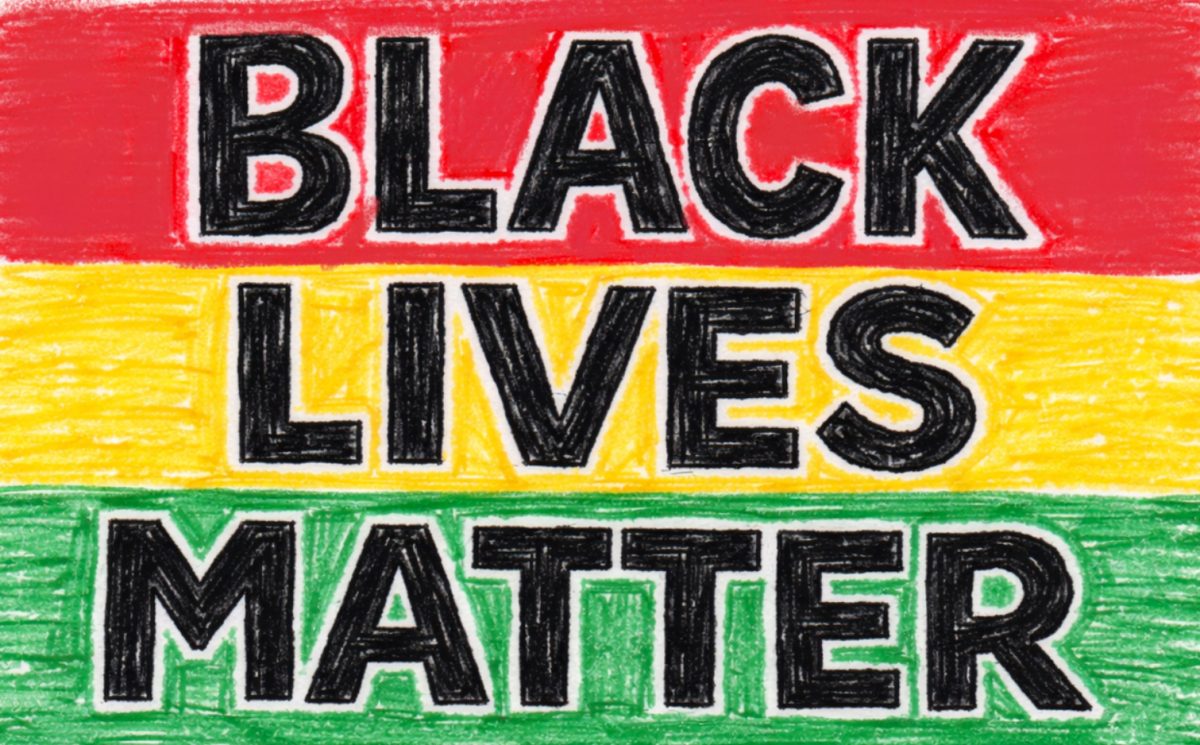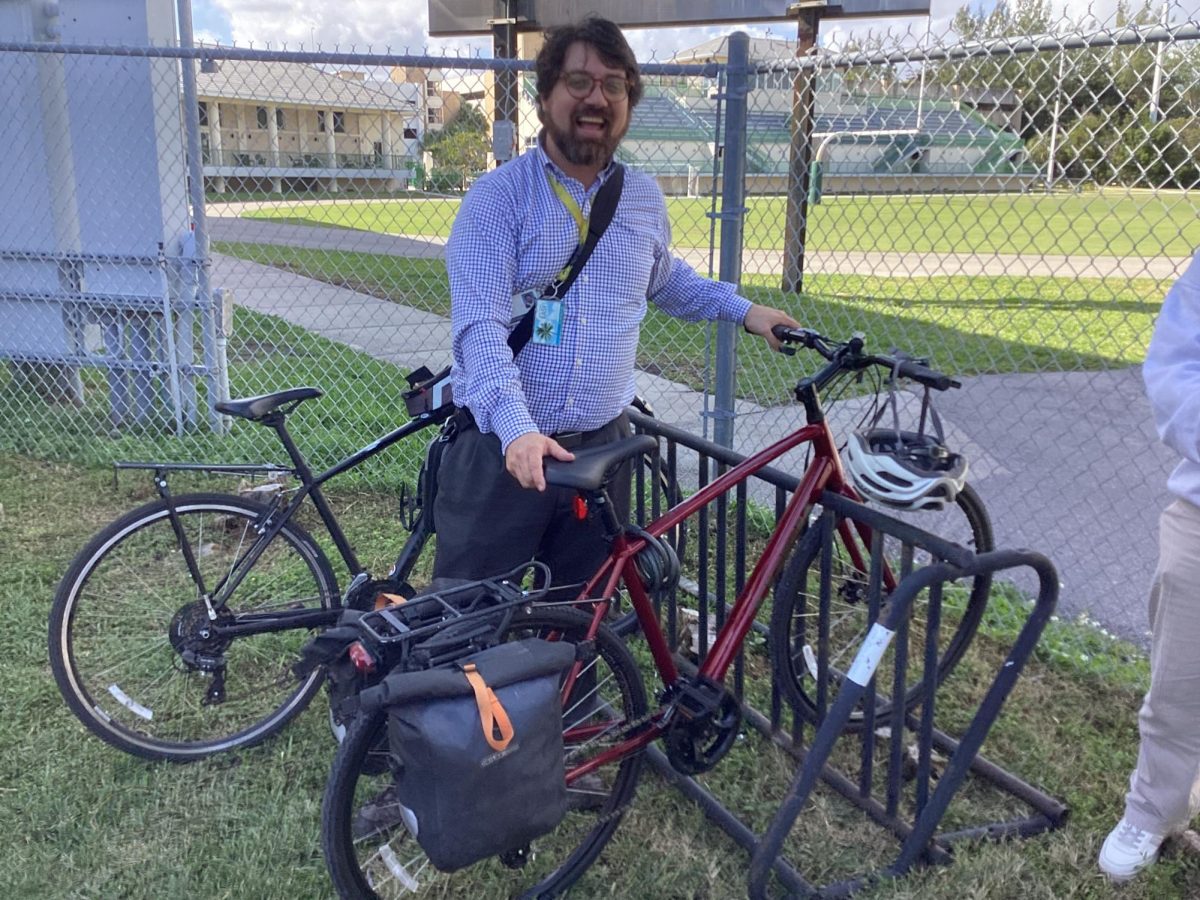A series of stories you will find in this first 2025-2026 issue of the Royal Courier have been written by new students tasked with writing a 300-word story, using three quotes from three of their journalism classmates/teacher, an original feature photo with a minimum 10-word caption, headline, and byline (their name and title). This story is part of that assignment written in order to demonstrate how it’s done.
A record-setting 15 students enrolled this year in the Royal Courier, ILS’s student-newspaper, by signing up to take the journalism elective. As with everything pre and post-pandemic, enrollment in this area was impacted.
What are some of the reasons ILS students have joined the class?
For senior Marina La Mendola, journalism was not her first choice. Faced with the prospect of having to spend $500 on a digital camera for a photography class, she opted out. Her guidance counselor offered her an array of elective options including judo, theater, and art.
“I chose journalism because my dad is a very good writer, and he wants me to become a very good writer. I thought journalism would help me to achieve that, plus I like to write. In middle school especially, I wrote a lot,” she said.
Aside from journalism, Marina is a volleyball player and a member of SALTT.
Sienna Daughton-Weill, a senior, works part time as a cashier at a local pizzeria. Focused on college applications and work, she decided to take journalism to aid her journey toward a higher education.
“I journal every day, and since high school began, I have filled four journals. I also thought having to interview people will give me the opportunity to meet new people,” she explained.
This year is the first since kindergarten that Sienna is not playing any sport as she is zeroing in on qualifying for a Bright Futures scholarship.
What does Google AI have to say about the benefits of taking a journalism class?
High school journalism offers numerous benefits, including improved writing skills, enhanced critical thinking, and greater awareness of current events. Students also develop crucial skills like interviewing, fact-checking, and meeting deadlines, while gaining confidence and potentially impacting their school community. Furthermore, journalism can foster a sense of responsibility, promote media literacy, and help students form informed opinions.
Here’s a more detailed look at the benefits:
Skill Development:
- Writing and Editing:
Journalism provides extensive opportunities to practice writing in various styles, from news reports to feature articles and opinion pieces. Students learn to craft clear, concise, and engaging content, while also developing editing skills to refine their work and the work of others.
- Interviewing:
Journalism students learn to conduct effective interviews, actively listen, and ask thoughtful questions, which helps them understand different perspectives and gather information accurately.
- Critical Thinking:
By researching, verifying information, and analyzing different viewpoints, students develop strong critical thinking skills, becoming more discerning consumers of information.
- Fact-Checking and Verification:
Journalism emphasizes the importance of verifying information before publication, helping students identify misinformation and understand the potential impact of bias.
- Meeting Deadlines:
Working on a newspaper or yearbook requires meeting strict deadlines, teaching students how to manage their time effectively and prioritize tasks.
- Technical Skills:
Depending on the program, students may also learn to use design software (like Photoshop and InDesign) and other media creation tools, enhancing their digital literacy.
Personal and Social Development:
- Increased Confidence:
Seeing their work published and knowing they are contributing to their school community can boost students’ confidence and self-esteem.
- Community Engagement:
High school journalism provides a platform for students to share their perspectives, report on important issues, and contribute to the school’s culture.
- Social Skills:
Working in a journalism environment, whether it’s a newspaper staff or a yearbook team, can help students develop their social skills, learn to collaborate effectively, and build strong relationships with their peers.
- Sense of Responsibility:
Journalism instills a sense of responsibility by emphasizing the importance of accurate reporting, ethical conduct, and thoughtful consideration of diverse perspectives.
- Media Literacy:
In an age of readily available information, often filled with misinformation, journalism education helps students become more critical consumers of media, enabling them to distinguish between credible and unreliable sources.
- Informed Citizens:
By learning about current events, understanding different perspectives, and practicing critical thinking, students become more informed and engaged citizens.
Impact on Academic Performance:
Studies have shown that students involved in high school journalism often have higher GPAs and ACT scores than their peers.
The consistent practice of writing and editing in journalism classes can significantly improve students’ overall writing abilities, which benefits them in all academic subjects.
During journalism class, juniors Maggie Balzarini and Vittorio Buttice collaborate on a story regarding cellphone use on campus.









